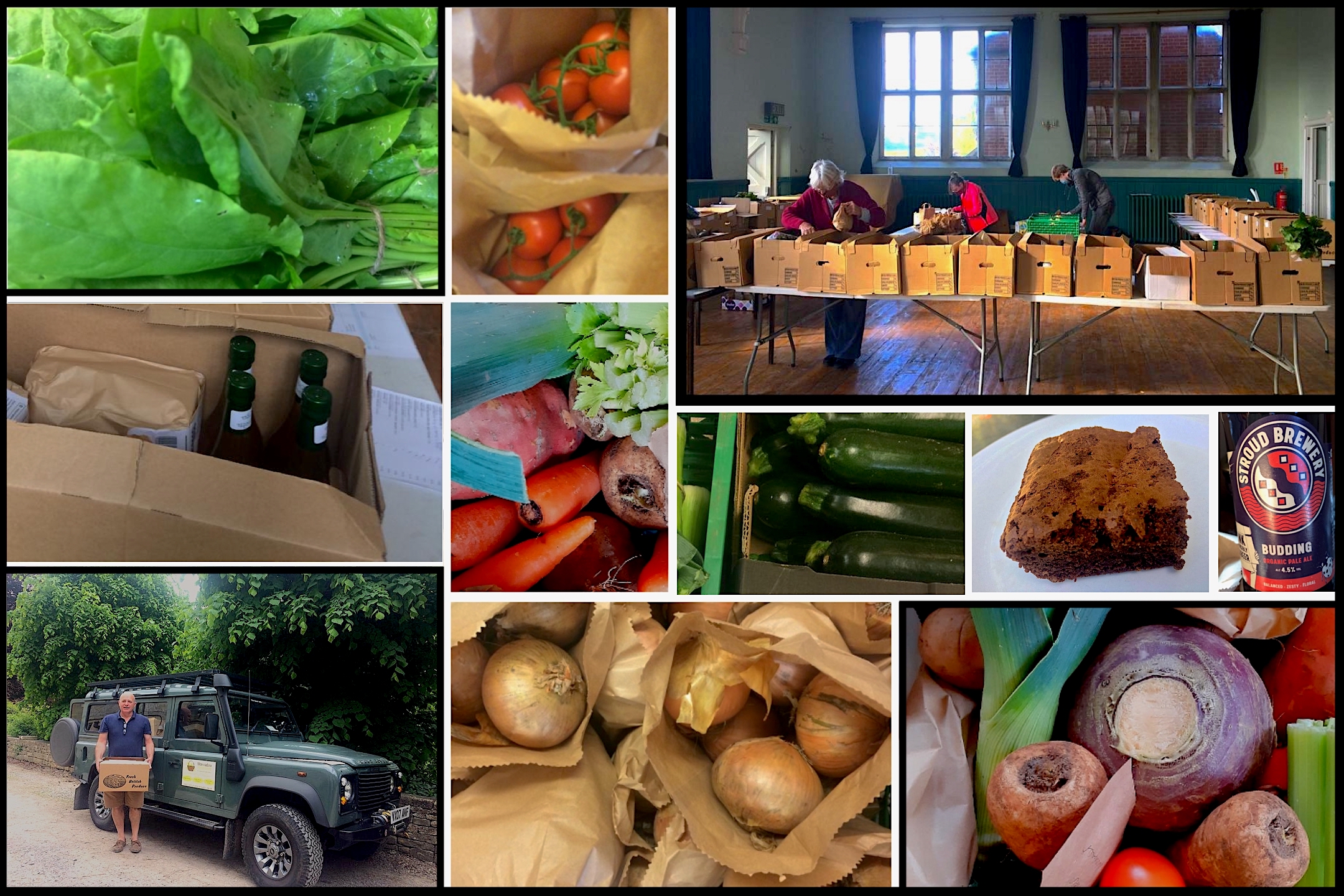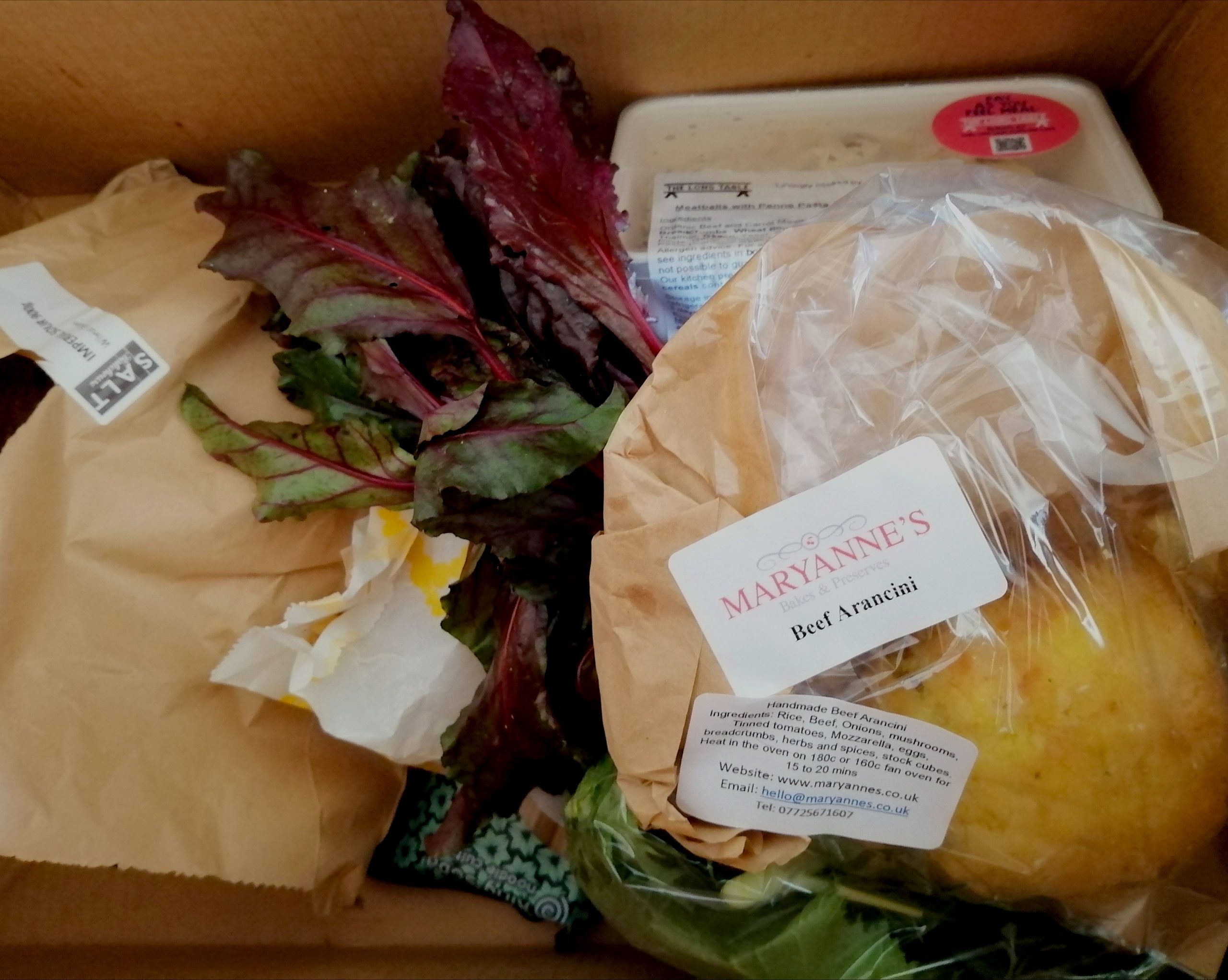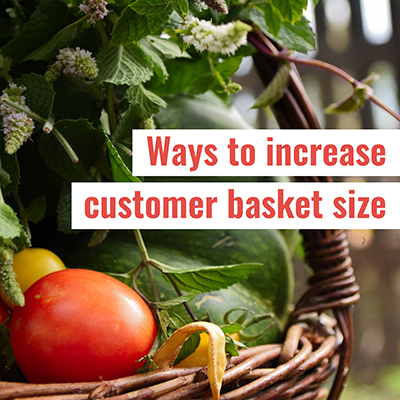Case Studies
Stroudco
Key Facts
A reliable not-for-profit online supplier of ethical local groceries for people living in or near Stroud which is helping to tackle the climate emergency by connecting up the local food economy and promoting low-impact shopping.
Your local online grocer for Stroud
| Established in | 2008 |
| Company type | CIC |
| N° of employees | 2 part-time staff |
Background & values
Stroudco was founded in 2008 by growers with their own allotments who got together with local producers in Stroud to ensure people could access local foods throughout the year.
We were initially working with families and used school buildings for picking and packing so people could pick up produce from the schools. Ten years later the service is still going, but we are just breaking even. We don’t do much promotion and a similar number of people are ordering each week from a limited and unchanging amount of produce.

In 2018, they looked to change the management to a cooperative, but it didn’t work and they decided to put the company on hold for 6 months.
When COVID-19 arose in 2020 they started up again to help the community, relaunching in March/April 2020 instead of May/June as originally planned. Due to the hard work of 15/20 people getting it back up and running, they managed to assist both producers, who had lost their markets overnight, and customers who were faced with restaurants shutting and empty shelves in the shops.
We had to find a load of suppliers, drivers, and pickers – all to operate under new covid restrictions. This was easy in some ways as there were many furloughed people, but it was very tight timing. The pressure was somehow very helpful though!
Since then they have been working at around 2 times the business level they had been over previous years.

The Vision
Stroudco’s vision has four main strands to it:
- Choose local first
- Keep your footprint tiny
- Support caring husbandry
- Support the local economy.
We sit in between the producer and consumer in the food system, and we’re trying to not prioritise either of them, as they’re equally important.
How the Open Food Network fits into this vision
Without the Open Food Network Stroudco would not have been able to happen and it would have been very difficult for them to operate without the software as it is embedded within their operations.
Engaging with the local community
Stroud is a market town built on the wool industry which is located in a very agricultural area in Gloucestershire. It’s population is keen on environment-friendly ways of living and there is a large appetite for local and organic foods. There is a tight knit community who are not shy about discussing environmental issues and what needs to be done and most of these people are customers and suppliers to Stroudco.
It seems to me there’s less materialism in the Stroud area. The farmers’ market is an example of that and it’s constantly busy. There are lots of outlets for ensuring that suppliers and producers have places to sell to. The start of lockdown threw a spanner in the works.
And with their strong local links, a ready market and a well known brand, Stroudco was in a great position to be helpful to the community when lockdown hit and local suppliers’ businesses were threatened.
Governance

Company structure
Stroudco is a Community Interest Company (CIC), with a board of 4 directors.
Other than the directors, there are:
- A management team of 2 part-time workers, an operations manager (15 hours) and an accountant (Oliver Muller).
- 10-12 volunteers on a rota system to help with picking and packing – which happens on Thursday afternoons and Friday mornings;
- About 5-7 delivery drivers.
Being a CIC, it is a membership organisation. This means that all customers and suppliers are eligible to be members. During their last Annual General Meeting they changed their system so that even if you are eligible to be a member you have to apply in order to keep the number of members low.
Day to day running of business
I come from a legal background and have been on and off involved in grocery home shopping companies. The company I founded in the 90s was the first company to have an online grocery listing. I’m a pioneer by nature and like to get things going! So I’m used to operating on a small structural framework with 3 or 4 people.
In 2017, the Stroudco structure was already in place: a board of directors who act more like trustees and make top level decisions and run the company. The Board is appointed by the members and members can get rid of them. The directors, who don’t get paid, delegate to paid managers, so they don’t run on a day to day manner but do take responsibility for finances for example. Volunteers expenses and costs are covered.
This system does work, but lots of work is put in by the board, which is very important and must be cohesive as a group. The four board members have different skills and generally they come from being a supplier or customer already, as having the same values as Stroudco is crucial.
Logistics
Order cycles
On Friday mornings, a list with 300-400 different items from around 30 different suppliers is made available online. The suppliers indicate what is and isn’t available and Stroudco makes changes to the list, rather than letting suppliers do it.
Customers have until 8am on Wednesday mornings to place their orders. Once orders have been taken, the system sends them to suppliers. Suppliers then have two days to get everything ready to be put into boxes at Stroudco. The boxes are then either collected or delivered by the delivery team. The premises are empty by 2pm and the process starts again the next day.
What can go wrong is that suppliers can forget to update their produce availability, but this doesn’t happen often. If an unavailable item gets chosen by a consumer, they get free delivery and Stroudco asks the supplier to refund or replace the item. Stroudco generally deal with order complaints on a case by case basis, but they are rare – which means the system works very well.

Holding Stock
Stroudco holds around £1200-£1500 worth of stock, which is mainly items which are bought by the case (such as beer from Stroud Brewery and wine). They tend to keep an even amount of stock over time, but they are careful to check best before dates to make sure nothing goes off. If items go out of date or they are not sealable anymore they make them available from the front door for people who might want to pick it up for free.
Managing non-food waste
The vast majority (around 90-95%) of food that Stroudco handles has no packaging, or is in paper or compostable bags. It’s mostly the products they hold in stock which are packaged. For example, beer and juices that come in a bottle are part of a recycling collection system.
One of the main questions asked at the start when deciding on a supplier is packaging, and we will favour suppliers with minimal or compostable packaging. Cheese is particularly problematic, as packaging is needed to stop cheese from drying out. Salad is a problem too as it can’t be put in a paper bag. We have to work on those issues.
Supplier relationships

Choosing producers
We have a flow chart which considers whether the supplier is in 10 miles, and if not then must have a very good reason for it not being local. We spend a lot of time trying to consider if new suppliers will meet various criteria. There are lots of relatively small decisions before someone can become a supplier. However, once someone is in the system, it tends to work quite well.
Stroudco normally make first contact with suppliers they have identified as being a good fit, but they sometimes have suppliers approach them. They try to make sure they have a broad and comprehensive range and usually go for local, organic and plastic free when possible.
The transportability of the product is important and also how we communicate with each other on a personal level. If we can’t work well in the first conversation then that is an issue as we need to get on well with producers.
It’s also important that new suppliers don’t compete with anyone already on the list.
It doesn’t matter too much if there is competition but decreases the potential for the order cycle to be bigger if all are the same thing. Ideally everyone should be selling something different. 3 different quiche suppliers each make 3 times less profit. Where there is no difference it is also frustrating for customers. There is a feeling that there should be a degree of preselection on suppliers.
They stay in touch with new suppliers to make sure they get set up smoothly on the system and things become routine. Suppliers then only normally contact the team if a problem arises or they need to change their listing. Beth who is in charge of marketing also contacts them for quotations and stories for marketing and comms.
Tools & equipment
- 4/5 freezers and fridges;
- a large number of folded cardboard boxes for the veg boxes;
- plastic bags with iceblocksfor cold food;
- 20/30 foldable tables where the boxes are packed;
- low grade PPE, such as masks and gloves.
The packing space is around the size of a school gym and it has tables laid out in a U shape.

Last summer we had a number of bicycle deliveries and now we have trikes with large front loading capacity and trailers at the back, but they can only take 3-4 deliveries. The bicycle courier system is dependent on people’s skills, so it’s not such a great idea but it looks good from a marketing point of view.
Essential software
The Open Food Network is the online ordering system which Stroudco uses, which includes their payment system. They use Google Maps as their routing system., together with their knowledge of the area to create spreadsheets for each driver.
The routing system would be much better if it was embedded in the Open Food Network software as I feel at some point this may be a restriction for our business.
Efficiency of Open Food Network
Stroudco believes that the Open Food Network has a good vision and they appreciate the customer support and forums which other platforms don’t offer. Having users talking at weekly webinars also gives a degree of authenticity. One improvement they would like to see is the ability to log into the same account from two separate devices at the same time.
I like that OFN is an open source system and can be rolled out anywhere no matter what the budget. The downside is that issues aren’t resolved in minutes. However, there are advantages and disadvantages to all systems and my belief is that open source is more suited to what we are trying to do.
Business model
Stroudco are operating at around a 20% margin. On food it’s around 17-18%, but adding in delivery charges and donations it becomes around 20%. 80% of the sale price goes directly to the producer.
100% of our revenue stream comes from selling to consumers. It looks like we will reach £85000-£90000 of turnover this year which has issues related to it as we need to work out if registering for VAT
They would be keen to set aside some funding to ensure people who can’t afford it but want to buy fresh locally grown food can still access their products. It is high on their agenda to look at a model that works without people getting confused or feeling that the system is unfair.
The local town council provided small amounts of funding and they’re in contact with the district council who have provided licenses and been very supportive.

Overheads
Their main expenses are their staff costs, including managers, and paying for their insurance. They pay all volunteers for the expenses they incur, which is mainly fuel. Their ability to pay for the overheads is generated from the margin that they have made from their sales.
Legal and financial advice
They try to look for people who bring expertise to the board e.g. Beth has a career in marketing and Oliver Muller does their accounts. They’ve not needed any official legal representation yet. They have an auditor too, but professional fees aren’t high.
Customer relationships
Stroudco have never done a formal demographic survey, so they don’t have the data to show who their customers are in terms of social categorisation or description. Order sizes could be an indicator, but their customers are making a wide range of order values, from smaller (around £5-£10) to larger ones (around £150).
During lockdown I did some deliveries and I was quite keen to find out who was using us. I am continually amazed by the wide variety of people from single people to couples to people in tiny houses to large houses. It shows how the pandemic has affected everyone in terms of being more wary about who comes into their house and wary of going into shops.
Stroudco’s don’t receive comments saying that it’s too expensive and their customers seem to accept their prices.
It’s good that people are supporting their local producers and we’re no more expensive than your local farm shop.
Communications with customers
One of Stroudco’s directors (Beth) does a monthly newsletter and manages their Instagram and Facebook profiles. Other than that, their communication with customers is limited to a chat when the customer picks up their shopping.
They have considered that there may be a gap between who signs up to the newsletter – which is voluntary – and who orders, but they are not sure how to address that. Also, it’s not easy to tell when someone stops ordering as their customers order at different times (e.g. anywhere from once a week to once every 3 months).
Handling complaints
Sometimes they receive emails with complaints, for example: “overly sweet cranberries, are they sweetened with sugar?”
In cases like this, they ask the producer about the matter and then liaise with the producer and the customer to find out all the information.
They always give refunds unless it’s completely unreasonable.

Measuring impact in the local community
This year, Stroudco turned over £75000 which is kept in the local economy.
We try to offer a range of food produced by people in the area to people who live in the local area to make sure that the money stays in the local economy. We have a standard markup of 20% on the price that we are asked to pay for goods. All the money, including that 20%, goes back into the local economy.
They also offer the possibility to donate while shopping on their site. Customers can donate to the food bank or a social enterprise (The long table) which creates surplus meals for people in the local area. In the last 6 or 7 months they’ve raised around £2000 for those organisations which shows how supportive the local community is.
Every year when the community decides to come together at the local pub to switch the public Christmas lights on, the market provides a hamper as part of the local fundraising efforts and festivities.
Getting help from the Open Food Network

Stroudco appreciates that the Open Food Network support team gets back to them relatively quickly when they ask for specific support.
What they feel could be improved is adding an easier way to move from the product to the inventory and having a preview function to check a shop when it’s closed.
And at times, Stroudco finds it difficult to set the prices for products, because many producers who sell through their platform do not offer wholesale prices. This leaves much of the product pricing calculation to Stroudco.
Extra resources
Click here to watch a recording where food enterprises, including James Millar from Stroudco, share their lockdown experience and response to the pandemic so far.
Click here to read a blog which shares the wisdom and experience of a number of food enterprises, including Stroudco, on everything they learnt from the first lockdown.
Watch this video on ways to increase customer basket size and how to grow sales for your food enterprise – with guest food hubs including James Millar from Stroudco.



